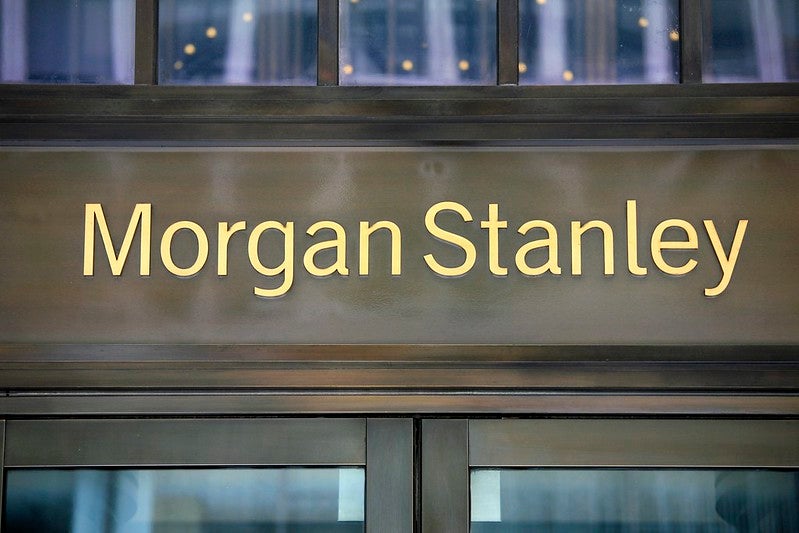
Senior figures in the UK private banking and wealth management industry tell Eleanor Jerome why uncertainty about Brexit is the biggest challenge facing the sector – and why it’s vital organisations undertake scenario planning. In spite of all the uncertainty there is confidence that private banks and wealth managers will be able to adjust.
Continued uncertainty about what type of Brexit deal the UK will achieve from exiting the EU – if it achieves one at all – makes preparations by private banks and wealth managers particularly challenging.
The consensus is that uncertainty surrounding Brexit presents a notable challenge to both the sector and its clients.
Bartosz Golba, head of wealth management content at GlobalData Financial Services. says the biggest challenge with regards to Brexit is uncertainty.
He says the industry certainly would appreciate knowing in advance what they have to prepare for, as any reorganisations will obviously require some budget.”
He notes there are examples of companies that have already moved or opened offices in other countries to prepare for Brexit.
How well do you really know your competitors?
Access the most comprehensive Company Profiles on the market, powered by GlobalData. Save hours of research. Gain competitive edge.

Thank you!
Your download email will arrive shortly
Not ready to buy yet? Download a free sample
We are confident about the unique quality of our Company Profiles. However, we want you to make the most beneficial decision for your business, so we offer a free sample that you can download by submitting the below form
By GlobalDataIan Woodhouse, head of strategy and change for private banking and wealth management at Orbium Consulting, says: “The short term impact [of Brexit] is uncertainty.”
According to Woodhouse, uncertainties around Brexit are also one of the main concerns of clients.
Neil Moles, managing director of Progeny Group, shares the view that lack of clarity is the biggest cause for concern for clients at this time.
Moles says: “Like the financial services sector in general, our clients’ immediate concern is more around the uncertainty on the horizon; they require more clarity so that they can get their affairs in order.”
Golba adds: “Brexit can naturally impact [clients’] investment portfolios: no deal with the EU will mean turbulence on capital markets (particularly equities and the foreign exchange market), so investment managers have to hedge risks or try to find asset classes that will perform well in times of uncertainty.”
Despite clear concern over the level of uncertainty, there is confidence that private banks and wealth managers will be able to cope with Brexit.
Golba says: “[Brexit] is just one of many factors that have to be taken into account when managing investments.”Brexit does not necessarily mean much ‘new’ disruption.
Moles strikes an optimistic note about the outlook for the sector post-Brexit. “Despite all the recent market volatility, the private banking and wealth management sector has gone from strength to strength… With this continued growth and expansion, we remain confident in the UK’s private banking and wealth management offering.”
Regardless of whether a deal is achieved, Moles argues the UK’s status as a top global financial player will not be diminished.
Charles Boulton, CEO of HSBC Private Bank UK, says the UK is such a big market with such a range of different models that it is very difficult to generalise.
Boulton says: “We are all watching for the details, but the UK is a very substantial market in its own right and its attractiveness for internationally minded High Net Worth clients is broad-based. What matters most for HSBC is to guide our clients through the process.”
Dave Elzas, CEO at Geneva Management Group, however takes a more cautious stance and warns of ‘Brexit damage’.
Elzas says “The structural damage incurred by the London market due to Brexit uncertainty, such as bankers being relocated to EU centres and Switzerland; departments being reorganised abroad, and funds being transferred overseas, have already started to set the UK back.
“Unless clarity is provided soon, the London financial market may suffer too large a setback to come back from.”
Passporting rights concern
The status of passporting rights for banks post-Brexit is one of the contentious issues facing financial institution, and as Private Banker International was going to press, the sector received some clarity
The UK government’s White Paper – published on 12 July – on the future relationship between the UK and EU proposes that the UK can no longer operate under the EU’s “passporting” regime, as this is intrinsic to the Single Market of which it will no longer be a member.
Instead, the UK proposing that the EU grant the UK an expanded version of equivalence.
Elzas notes that Switzerland has managed to thrive in a hybrid model known as the “Swiss Model” whereby the Swiss regulation mimics much of the EU regulatory environment, thereby achieving “equivalence” and by signing bilateral agreements with singular EU member state.
In his view, unless the UK obtains clear post-Brexit agreements with the EU which will allow it to maintain its EU passporting rights for cross-border marketing and banking, it’s very likely that the UK might have to adopt something like the “Swiss Model”.
“If that were the case, that would add significant strength to Switzerland’s corner by having a second, very large and very significant European financial market lobby the EU for equivalence rights by its side,” says Elzas.
Elzas adds that Switzerland would have the further added advantage of already having put in place these intergovernmental agreements over the past decades, whereas the UK will still need to allocate a lot of time, money and resources to get to the same place.
Woodhouse says that in light of the uncertainty around exactly what Brexit will look like, it is crucial that the sector prepares for any eventuality.
“It is critical for firms to act now and undertake scenario planning and risk assessment so they are well prepared to act quickly under whatever Brexit outcome prevails.”







